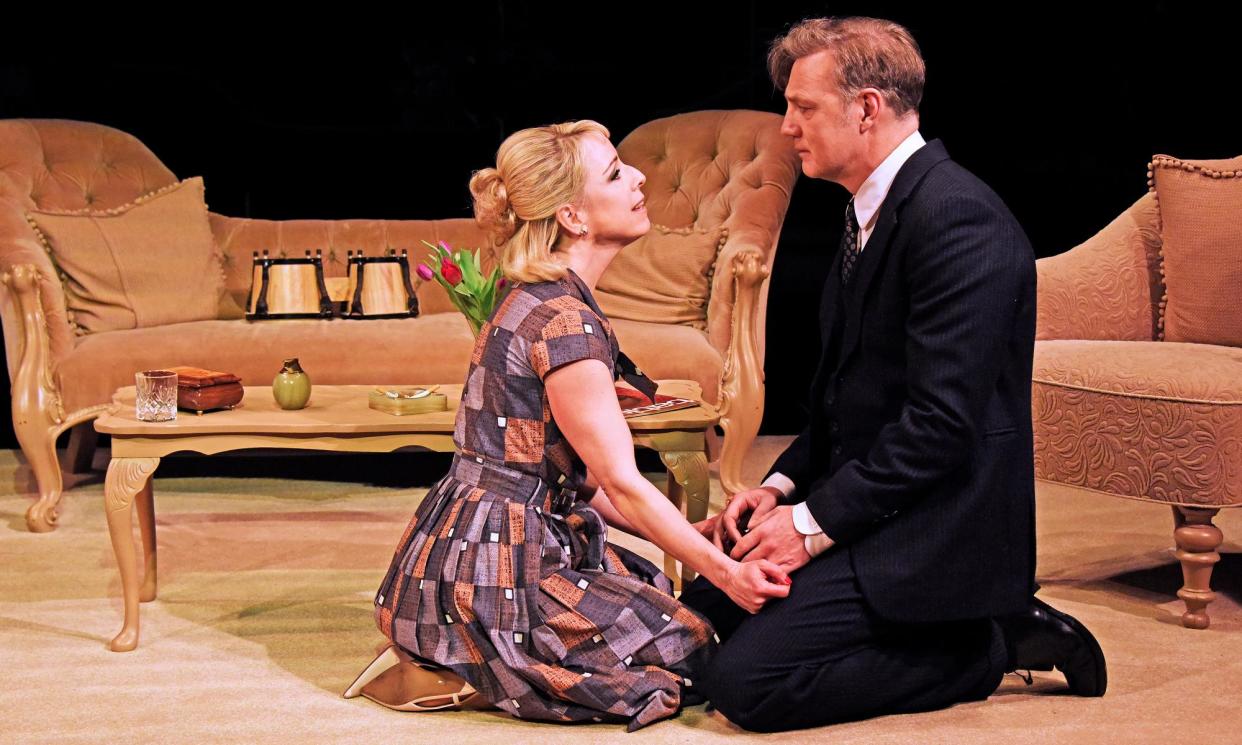The Lover/The Collection review – Pinter plays psychological games

Truth, lies and fantasies in long-term relationships sit at the slippery centre of these one-act plays from the early 1960s, originally written by Harold Pinter for television. The couples – straight, bisexual, jealous and betraying – are not so much engaged in power battles as playing psychological games whose terms can suddenly change. They are enacted under Lindsay Posner’s slick direction, the nervy comedy drawn out by an astute cast, without being hammed up.
The first is the simpler in its setup but more satisfying for its clever twist. A quintessential home counties couple, Sarah (Claudie Blakley) and Richard (David Morrissey), act out “adulterous” sexual fantasies with each other. The husband is the wife’s Lady Chatterley-style lover every afternoon. Then it becomes a delicious satire of bourgeois norms as they return to middle-class respectability by evening, talking about the hollyhocks in their garden.
Blakley and Morrissey deftly walk the delicate balance between comedy and danger, the latter building as Richard breaches the unspoken terms of their shared fantasy to place Sarah on the back foot, then finds himself in retreat when the line in the madonna/whore fantasy becomes blurred beyond comfort.
The Collection, featuring two couples in upmarket west London, is a trickier proposition. Bill (Elliot Barnes-Worrell) appears to be the younger lover of Harry (Morrissey) but may have spent the night with Stella (Blakley), whose husband James (Mathew Horne) confronts him with an initial air of menace.
That confrontation develops into a role play between them and questions arise: what is the difference between lying and fantasising? Does infidelity take place in its thinking rather than its doing? And who is being unfaithful to whom here?
The veneer of polite language is a cover for passive-aggressive salvoes in both plays, but the second does not feel as potent or dangerous, the comedy and clipped period accents neutering the threat. Peter McKintosh’s set design has an emphatically vintage look, with old phones and a sharp 1960s wardrobe, and it is stylish if a little distancing.
Both playlets underline the complicated position of women in Pinter’s oeuvre. What might be confused for misogyny (women are “whores” whose faithfulness is in question) is an exposé of men’s fear.
• At the Ustinov Studio, Theatre Royal, Bath, until 20 April


